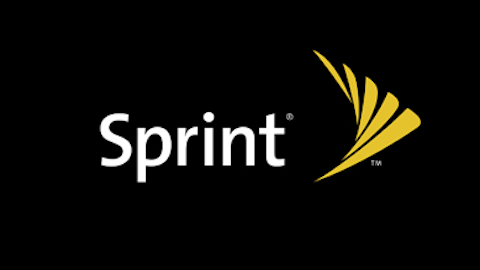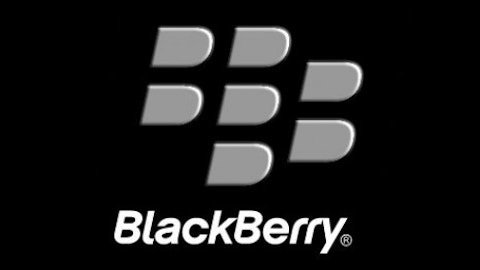One of the most polarizing stocks in the recent past has been phone maker Research In Motion Ltd (NASDAQ:BBRY). After watching its dominant position in the smart phone market dissolve as the iPhone and Android phones grew in popularity, the company released its newest iteration of phones with a new operating system in early 2013. In the first quarter of 2013 BlackBerry phones fell to the number four position in global smart phone shipments behind Android, iOS, and the resurgent Windows Phone.
Research In Motion Ltd (NASDAQ:BBRY)’s short interest has more than doubled from a year ago, growing to 171 million shares by the end of May. This is a little over 9 times the daily average volume and represents about 35% of the float. The short argument is simple – BlackBerry can’t compete with the likes of Google Inc (NASDAQ:GOOG), Apple Inc. (NASDAQ:AAPL), and Microsoft Corporation (NASDAQ:MSFT) and will eventually fade away, possibly selling its patents or parts of itself to the highest bidder.
There’s also a long argument. Research In Motion Ltd (NASDAQ:BBRY) phones have traditionally been used in the enterprise and by government agencies due to their enhanced security features – President Obama uses a BlackBerry. BlackBerry just needs to secure this niche and bring the company back to consistent profitability. There are still plenty of loyal BlackBerry users, and the company needs to make sure not to lose them. The inclusion of a physical keypad on the BlackBerry Q10, unheard of in modern smart phones, should be popular amongst those who prefer a keypad over just a touchscreen.
As it turns out, neither argument is very compelling.
The problem with the short argument
The short argument made a lot more sense when the stock was trading at $50 per share, but right now the market is valuing BlackBerry at about $7 billion. The big problem with going short now is the company’s balance sheet. BlackBerry has $2.6 billion in cash along with $200 million in investments and no interest-bearing debt. This cash position represents about 40% of the company’s market capitalization, meaning that the market is valuing all of Research In Motion Ltd (NASDAQ:BBRY)’s future earnings at a little over $4 billion.
BlackBerry has a book value of $9.5 billion and a tangible book value of $6 billion, and its current assets minus total liabilities is $3.4 billion. Shorting a stock which is trading below book value, which has 40% of its market capitalization in cash, and has no debt whatsoever is a dangerous move. Obviously the story was different when the company was valued at $35 billion in the beginning of 2010, but now the balance sheet creates a floor on the value of the stock. That floor may be lower than where the stock currently trades – BlackBerry traded for around $6 per share last year.
In fact, the floor is right around the value of the current assets minus the total liabilities of $3.4 billion. This would be the liquidation value of the company assuming that its fixed assets and intellectual properties are worthless. This valuation assumes that the company will never earn any profits ever again.
Research In Motion Ltd (NASDAQ:BBRY) is a dangerous short because any profits at all will send the stock soaring. Couple that with the incredible short interest and you have the makings of a short squeeze for the ages. In order for the short argument to be worthwhile it has to be 100% correct. In other words, BlackBerry has to go bankrupt. This is unlike the short argument for Tesla, for example. Tesla has become so overvalued near $100 per share that the company doesn’t need to fail for the stock to come down. The outrageous expectations of investors will be the stocks downfall. BlackBerry is the opposite in that the expectations of the shorts are unrealistic as opposed to the longs. And that extreme pessimism could be their downfall.
The problem with the long argument
BlackBerry has so many things working against it that it makes little sense to gamble that the stock will rise. Back when Research In Motion Ltd (NASDAQ:BBRY) had its giant market share the company’s phones were the best available. Now, that’s nowhere near true. Apple has its iPhone, which is losing market share but still extremely popular. Google Inc (NASDAQ:GOOG) open-source Android operating system is free, leading to a wide array of Android devices spanning all price ranges and capabilities. And Microsoft’s fairly new Windows Phone 8 brings the tech giant into the modern mobile era. How can BlackBerry compete with all of this? Well, it can’t.
Apple makes tens of billions of dollars per year in profits, and a big percentage of this comes from the iPhone. New iPhone launches still have people lining up around the block at Apple Inc. (NASDAQ:AAPL) stores to buy the new devices, and many Apple users are extremely loyal. Apple unveiled an update to its iOS operating system recently, introducing a cleaner interface as well as a slew of new features. Apple’s app store has now had over 50 billion downloads of over 900,000 different apps.
Apple also makes the leading tablet, the iPad, which runs on the same iOS operating system. BlackBerry attempted a tablet with the BlackBerry playbook a few years ago, but the device failed miserably. Apple makes a bulk of the profit in the smart phone and tablet business even though it doesn’t ship most phones. This is because Apple Inc. (NASDAQ:AAPL) focuses on selling a premium product at a premium price, much like their Mac computers. This also means that Apple will at best be number two in terms of volume.
Number one is and most likely will remain Google Inc (NASDAQ:GOOG)’s Android. The proliferation of Android devices is a boon for Google, leading more users into its array of web services. With the leading email service in Gmail and the popular Google Docs and Google Drive, along with an app store with about as many apps as iOS, Google’s ecosystem is an attractive one. And with Google pushing its services on the enterprise market, with a recent partnership with HP, this threatens Research In Motion Ltd (NASDAQ:BBRY)’s core market. If a company uses Google services it’s likely to also use Android phones.
BlackBerry is vying for the number three spot, but it faces stiff competition from Microsoft Corporation (NASDAQ:MSFT). Windows Phone 8 has been gaining market share, becoming the number three OS in the first quarter of this year, and the well reviewed Nokia Lumia phones bode well for the OS’s future. This is not Microsoft Corporation (NASDAQ:MSFT)’s first phone OS but it is the first one that has a chance of seeing success.
Here’s an interesting graphic regarding the planned enterprise deployment of mobile apps:

While BlackBerry has more apps deployed currently, enterprise deployment over the next 12 months for Windows Phone, and indeed every other mobile OS, outpaces BlackBerry considerably. It seems that the world has moved on from BlackBerry, and it will be difficult for the company to regain its ground.
The bottom line
Neither the short or long case for Research In Motion Ltd (NASDAQ:BBRY) is all that attractive. The balance sheet is strong, and even a hint of profitability could send the stock soaring. If BlackBerry were riddled with debt it’d be a different story, but that’s not the case. On the other hand, the long case is essentially betting that BlackBerry can become the number four or possibly the number three mobile OS, leading to at best marginal profitability. There is really no chance that BlackBerry returns to its previous dominance. So the long case doesn’t seem like all that lucrative of a turnaround story.
Some stocks should just be avoided. You don’t have to be long or short. You can be neither. And that’s the best course of action with BlackBerry.
The article Avoid This Stock, Long or Short originally appeared on Fool.com and is written by Timothy Green.
Timothy Green owns shares of Microsoft. The Motley Fool recommends Apple and Google. The Motley Fool owns shares of Apple, Google, and Microsoft. Timothy is a member of The Motley Fool Blog Network — entries represent the personal opinion of the blogger and are not formally edited.
Copyright © 1995 – 2013 The Motley Fool, LLC. All rights reserved. The Motley Fool has a disclosure policy.






